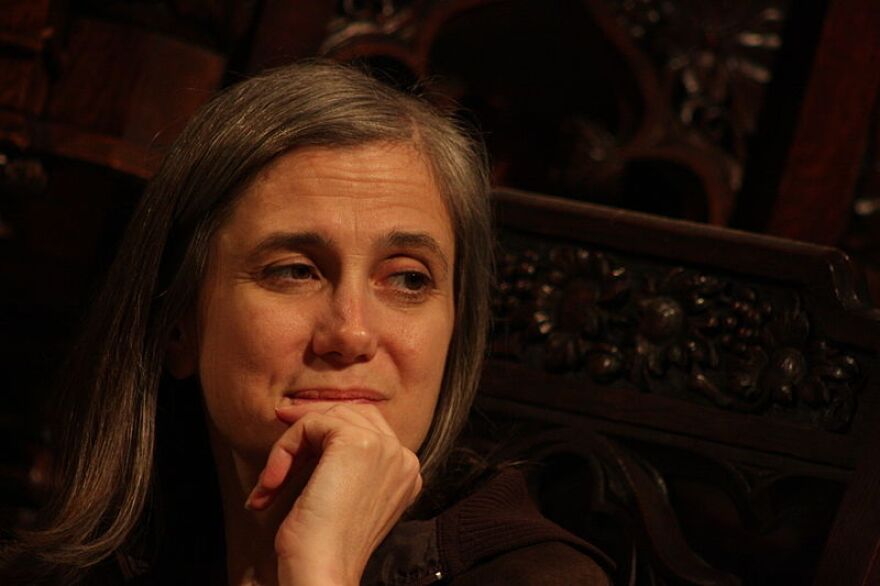Independent journalist Amy Goodman is in New Mexico this week to share stories from her new book Democracy Now: Twenty Years covering the Movements Changing America. We caught up with Goodman to talk about the connections she sees between social movements and the current election season.
GOODMAN: It is about the pressure from below. It is about the immigrants’ rights movement, the Black Lives Matter movement. It’s about the peace movement in this country, the women’s rights, the LGBT rights movement in this country. They are the movements—the environmental movement of course taking on the issue of climate change—that have pressed this country forward.
GUSTAVUS: This is an election year. There’s a lot of debate about what the current political climate can tell us about where the country is headed. What do you see your role and the role of Democracy Now! in covering the 2016 elections?
GOODMAN: Well, filling in the gaps, the kind of silencing that’s going on. You know the whole term “No news is bad news” as long as these candidates get covered. But when you have someone, for example, like Bernie Sanders, he so often gets vanished. The Tyndall Report looked at all of 2015. Trump got 23 times the coverage of Bernie Sanders. Or you have, for example ABC “World News Tonight,” they point out, gave Donald Trump 81 minutes in 2015 and Bernie Sanders, what, 20 seconds?
And what’s so fascinating about all of this is that still, Sanders is breaking records. Fundraising records, right? March, he got $44 million. Hillary Clinton got something like $29 million. Number of donors, 6 million donors. These unprecedented rallies—the size of these rallies—and it’s not with the media’s help.
What we see is happening in 2016, it’s tapping into all these earlier movements that have been frustrated—sometimes they win, sometimes they fail. And I think they are now re-emerging and coalescing.
GUSTAVUS: You’ve covered voting rights and voter disenfranchisement on Democracy Now! in recent weeks. Is that issue a greater concern to you today than 20 years ago?
GOODMAN: You know, it really is, Sarah. I mean, this is an extremely serious issue. We are seeing the Voting Rights Act gutted. I was down in Selma for the 50th anniversary of the voting rights march led by John Lewis when he had his head bashed in as he led 600 marchers over the Edmund Pettus Bridge. Fifty years later, we’re seeing state after state—look at Arizona. I mean, in their primary, they cut their voting places 200 voting places in Phoenix alone, which has a large Latino population, they cut out 140 voting stations on Election Day, you know, from 200 to 60. And people had to wait like five hours. So many people can’t do that. They work. Maybe they’re older. Maybe they’re infirm.
This is a real violation of people’s right to vote. And the reason given was, Oh, Arizona wanted to save some money. Really? Cutting the polling places from 200 to 60? Well, if they wanted to save money, why bother opening any polling place at all? I’m sorry. I think what we’re talking about is a real threat to democracy. And it’s happening across the country, and it’s got to be challenged.
GUSTAVUS: What do you see are the connections between that access to democracy and to the democratic process, and access to information through the media? There’s so many ways people can get information, but in some ways that’s even more challenging for people to get good information.
GOODMAN: Independent media is the oxygen of a democracy. It’s absolutely critical that we provide this forum for people to speak for themselves.
*****
Goodman will be at the RFK Charter School in the South Valley tonight to talk with students about immigration and a new low-power FM station. And she’ll speak at the Lensic Performing Arts Center in Santa Fe on Tuesday night.

